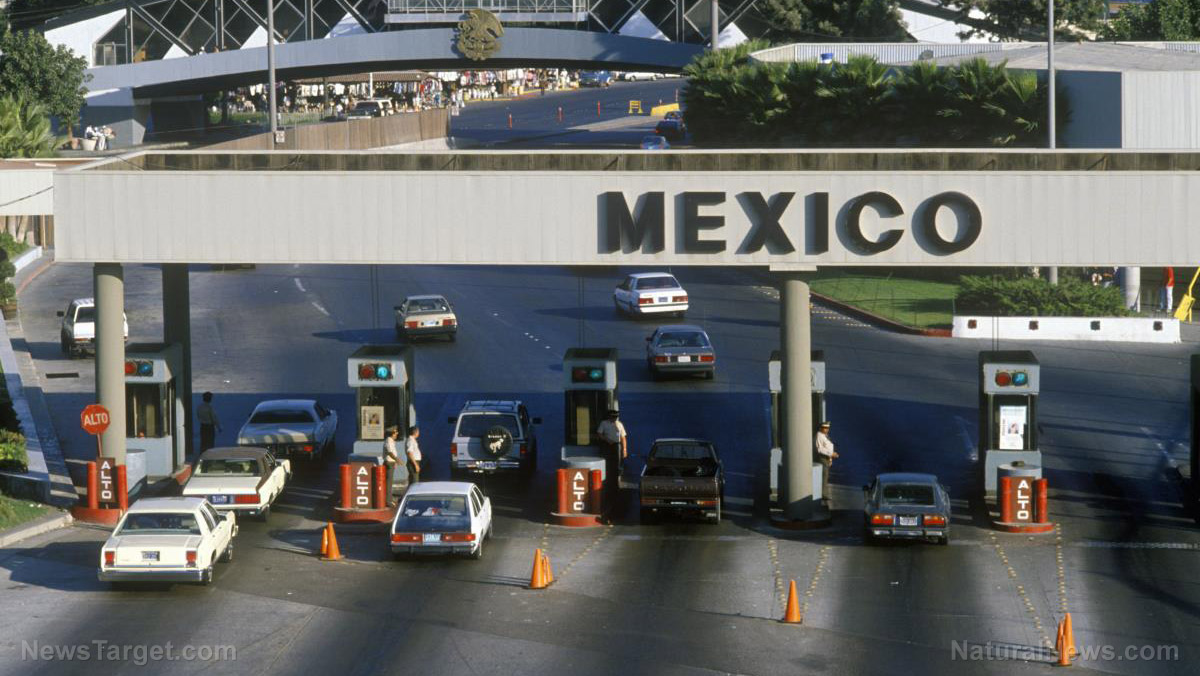California once again experiencing massive port congestion, number of ships waiting to dock approaching record highs
07/13/2022 / By Arsenio Toledo

In a sign that the supply chain crisis was never fully resolved, the number of container ships waiting to offload their goods at the ports of Los Angeles and Long Beach are approaching record highs set last year.
In late October last year, the ports of Los Angeles and Long Beach experienced record-breaking port congestion, with many container ships having to wait over a week before they can dock and offload their goods. (Related: Ocean freight rates climb for third straight month; volatile global shipping costs worsening inflation.)
As of Monday, July 11, the Port of Long Beach broke the record it set last year for the number of import containers sitting in Long Beach terminals for nine days or more. There were 28,723 such containers in the port, nine percent higher than the record set in late Oct. 2021.
In Los Angeles, there were 33,999 import containers sitting in the port’s terminals for nine days or more. This is up by 20 percent over the past 12 days. The last time the Port of Los Angeles had this many import containers dwelling for nine days or more was on Nov. 18, 2021.
It should also be noted that there are an additional 33,309 containers sitting in the Port of Los Angeles for zero to four days and 12,421 sitting for five to eight days.
According to Project44, a software company analyzing data on the country’s supply chain, the dwell time for import containers in both ports has surged up since the first week of May – by 32 percent in Los Angeles and 41 percent in Long Beach. The last time rates were this high was in the first week of December.
The brewing crisis in Southern California has national implications. It is estimated that as much as 40 percent and 25 percent of America’s imports and exports, respectively, pass through the ports of Los Angeles and Long Beach.
Container ships waiting to dock have over $40 billion worth of cargo
According to the latest data, all of the container ships waiting to dock at American ports are carrying an estimated $40 billion worth of cargo.
On the morning of Friday, July 8, there were a total of 125 container ships waiting off the ports on the West Coast, East Coast and Gulf Coast. This is down by just 16 percent from January, when there were 150 ships waiting to dock off American ports.
The situation in Southern California has been terrible already, but it is made even worse by the fact that the ships waiting off West Coast ports only constitute around 36 percent of the ships waiting to dock. The remaining 64 percent of waiting ships are off the East and Gulf Coast ports, with Savannah, Georgia, currently having the longest ship queue in the United States. The waiting time for a berth in Savannah is currently between 10 to 12 days.
The second-longest queues in the East Coast and Gulf Coast are in the Port of New York and New Jersey and the Port of Houston, which have 20 waiting vessels each.
Learn more about the state of America’s supply chains at SupplyChainWarning.com.
Watch this clip from InfoWars featuring former Secretary of State John Kerry calling for a complete shutdown of the supply chain.
This video is from the InfoWars channel on Brighteon.com.
More related stories:
ALL railroad freight to potentially halt on July 18 due to national “labor strike.”
Used truck auction prices drop as more truckers abandon their vehicles and leave the industry.
Sources include:
Submit a correction >>
Tagged Under:
California, chaos, Collapse, crisis, port congestion, Port of Long Beach, Port of Los Angeles, supply chain, supply chain disruptions
This article may contain statements that reflect the opinion of the author
RECENT NEWS & ARTICLES
COPYRIGHT © 2017 CALIFORNIACOLLAPSE.NEWS
All content posted on this site is protected under Free Speech. CaliforniaCollapse.news is not responsible for content written by contributing authors. The information on this site is provided for educational and entertainment purposes only. It is not intended as a substitute for professional advice of any kind. CaliforniaCollapse.news assumes no responsibility for the use or misuse of this material. All trademarks, registered trademarks and service marks mentioned on this site are the property of their respective owners.




















